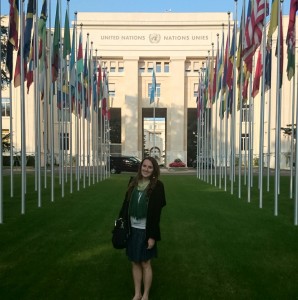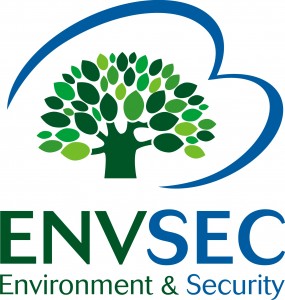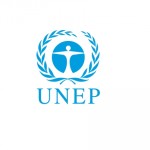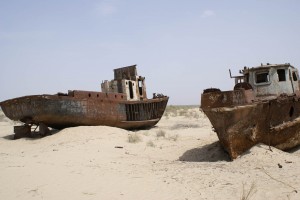“Where resource exploitation has driven war, or served to impede peace, improving governance capacity to control natural resources is a critical element of peacebuilding.” Carolyn McAskie
I flew out of John F. Kennedy International Airport the day after the People`s Climate March where over 400,000 people gathered to voice their concerns regarding climate change action to the United Nations (UN). In the hype of largest climate demonstration in history I headed off to Geneva, Switzerland, to begin a four month internship based around my thesis research with the United Nations Environment Programme (UNEP).

The United Nations Office of Geneva (UNOG), as the second largest UN duty station, is one of the busiest conference centers in the world and a focal point for multilateral diplomacy.
In my time with UNEP I am working under the Environment and Security Initiative (ENVSEC). ENVSEC was established in 2003 as a unique partnership of six international organizations that includes
- United Nations Environment Programme (UNEP)
- Organization for Security and Co-operation in Europe (OSCE)
- United Nations Development Programme (UNDP)
- United Nations Economic Commission for Europe (UNECE)
- Regional Environmental Center for Central and Eastern Europe (REC)
- North Atlantic Treaty Organization (NATO)
The ENVSEC initiative recognizes the linkage between climate change, the exploitation of natural resources and security. Since the initiative was implemented it has administered projects in 30 countries partnering with over 100 local organizations.

ENVSEC works with governments, research institutes, non-profits and civil societies across Central Asia, Eastern Europe, South-Eastern Europe and Southern Caucasus to transform increasing environmental risks into cooperative cross border solutions. These environmental risks range from transboundary water issues to hazardous chemical material.

The six organizations work together to provide assistance to states by helping identify vulnerable areas, facilitating dialogue between countries, enhancing governmental and civil capacity, and providing a set of financial tools and expertise to mitigate environmental hazards that threaten a state`s security.
ENVSEC believes that joint environmental cooperation between states can foster trust between nations not only preventing conflict, but promoting peace. Through the initiative 150 projects across priority areas have been implemented.
My work with UNEP
 My work with ENVSEC is focusing on developing a list of best practices for international institutions intervening in water conflict issues concentrating on Central Asia. I became exposed to this environment and conflict topic during my first year at Bard College Center for Environmental Policy, after completing a statistical analysis and literature review on climate and conflict. Though climate change and security is gaining more public attention, the complexity of the research has required me to resort back to my science classes to understand how vulnerable regions will be affected by climate change, economics to understand the models linking climate to conflict, and policy to understand how institutions are combating these impacts.
My work with ENVSEC is focusing on developing a list of best practices for international institutions intervening in water conflict issues concentrating on Central Asia. I became exposed to this environment and conflict topic during my first year at Bard College Center for Environmental Policy, after completing a statistical analysis and literature review on climate and conflict. Though climate change and security is gaining more public attention, the complexity of the research has required me to resort back to my science classes to understand how vulnerable regions will be affected by climate change, economics to understand the models linking climate to conflict, and policy to understand how institutions are combating these impacts.
One priority area I will look at is the Aral Sea, the largest lake in a Central Asia and formerly one of the largest in the world. The lake is located within a conflict-prone agriculturally dependent region and is highly polluted and degraded. My thesis will unravel the relationship between water scarcity and conflict and assist institutions like UNEP in understanding methods for effectively addressing future water conflicts.

I will also work with UNEP on researching strategies for effectively developing a green economy in Central Asia. The Green Economy Initiative was launched in 2008 and supports and array of sustainable practices aimed at helping economies develop into socially inclusive, low-carbon, resource efficient societies.

The most valuable part of my internship thus far has been the available resources and opportunities I have access to as I develop my thesis and prepare for a future career. I have been able to attend multiple conferences and remain somewhat jaded being in the presence of inspiring leaders from all over the globe working on changing the ideas of the world. I never know what opportunities will come with each day, and I have been able to use a variety of skills. In one moment I am attending a lecture by President Rafael Correa of Ecuador on sustainable development while in another moment I am speaking in Xitsonga (a language I studied while I was in the Peace Corps) to a woman who won an award for starting a successful business in Zimbabwe. Additionally, within my division at UNEP my supervisors are open to my thoughts and interests and have given me tasks ranging from attending a briefing on parliamentary democracy in Uzbekistan to writing up white papers and proofing project proposals. I am excited to see what else will come in my next few months in Geneva.
